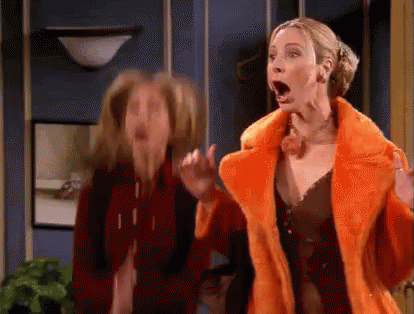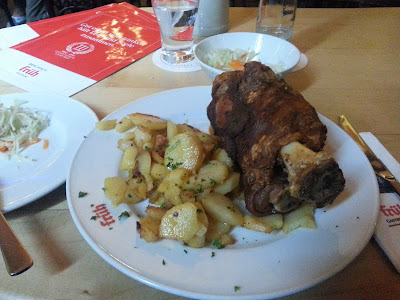It's strange to be so brashly titling this post considering the lifelong fear I've held on the subject. You could say I was a dramatically fearful kid and when I was about 7 or 8, I came across
AJP Taylor's The Second World War - An Illustrated History in my brother's room and after that, my fear of kidnappers and cyclones swiftly turned into a fear of armies, soldiers and dictators.
I won't pretend I read the book in its entirety because I certainly never did however as the word 'Illustrated' would suggest, there were a great many pictures in it and many of those were intensely traumatising to a young kid. Sure, the rather comic pictures of propaganda from during WWII were almost a form of cartoonish relief, but I ultimately got the gist of just how horribly the world suffered between 1936 and 1945 and that new information was terrifying.
Not to mention well timed. In 1990, I was 7 going on 8, and much as I tried to avoid the news, I wasn't ever able to escape the reports of what was happening in Iraq and Kuwait and joining the growing mini-encyclopedia of horrors I was slowly constructing inside my head (thanks to Mr Taylor) were reports from the news, the newspapers and our monthly Reader's Digest, of the atrocities being committed by Saddam Hussein and his army. A measure of how deeply internalised this information became is a dream I can still vividly recall in which an Iraqi ship had somehow made it's way all the way to (the dream version) of Sydney Harbour followed by my dad and myself being taken prisoner and being lead onto the ship. Thankfully I woke up before anything drastic happened but I continued to live each day battling fear about a war that was happening on the other side of the world.
Then of course 1992 came around and the war in Yugoslavia broke out, the subject of which is the reason this post has come into existence. By '92, my consumption of new articles and stories of various wars had unfortunately increased and again my very sensitive young mind was not so well equipped to handle the footage of bombings and people huddling from snipers in Sarajevo. I cried a lot that year about the people in Yugoslavia and, being a kid, really only understood that Serbs = bad. My Year 3 teacher at the time happened to be Slovenian and her attempts to explain the conflict, whether she meant them to or not, only confirmed for me that the Serbians were the bad guys.
I remember reading about the 'Romeo and Juliet of Sarajevo' (again, likely thanks to Reader's Digest) and wondering why, why, why would the sniper have taken the shot. Did he not know that the boy, Bosko, was a Serb? Did he not understand that if Bosko could love their 'enemy', maybe there was no reason to kill them? I know now that it was never determined that a Serb killed the two but I wasn't to know that back then and all of it just felt senseless. Later in high school, I would end up reading
Zlata's Diary not too far followed by The Diary of Anne Frank, and hating the level of innocence that had to suffer at the hands of powers who simply did not care.
As I write this, I'm suddenly reminded that the reports of this kind obviously never ended, but, as
this article I found from 1994 states, they simply changed places. Mixed up in amongst the stories and reports from Iraq and Yugoslavia, were the reports from Rwanda and learning that Hutus and Tutsis existed. It was just ongoing and alongside the more fun things that Buzzfeed likes to remind us of about the early '90s, these are things that I also associate with that time.
Yesterday and today, I ended up Wiki-ing the siege at Sarajevo, realising that I still didn't really have a complete idea of what happened at the time. Even before I'd ever set foot in Europe, something that still sets off a ping in my mind is when people have referred to or spoken of Serbia and Bosnia as 'amazing holiday destinations' because my immediate association is a war which somehow still feels recent. Bearing that in mind, I decided to look it up and here I am, slowly recalling bits and pieces that I'd read at the time and filling in more of the gaps.
I associate all of the conflicts mentioned above with the pre-9/11 world - a world which as of late, I'd begun to see with the rosiest of coloured glasses. 9/11, the wars that followed in Afghanistan and Iraq, the terrorist attacks in Madrid, London, Mumbai, the civil war in Syria and the rise of Islamic State not to mention the increasing frequency and spread of attacks, these things have inevitably led to thoughts of just how far flung the world is. Of course, it's not hard to feel that way in the face of the current state of the world and our increasing ability to see it all happen as it happens.
But then I read again about events like Sarajevo and quickly remember, alongside the aforementioned concurrent conflicts, things like the constant reports from the Middle East, Rodney King and the LA riots, the earlier bombings in NYC and the World Trade Centre, the shootings in Port Arthur and Dunblane and of course later, in Columbine and remember just how often I thought the world was 'dying' back then, too. These days, the nature of news and social media only means we hear about more incidents more quickly so it makes sense that the world could be just as bad as it was back then, only we're reading and hearing more about it now.
And that notion could be further supported by the fact that, despite wherever we are now, the world is probably at a point where most 'civilised' countries aren't all at open war with one another. Unlike the centuries prior. With the recent Brexit and discussion around the efficacy and the purpose of the EU, it still amazes me that a set of such closely packed countries that have easily spent the last two millennia at war have lived in relative peace since the end of WWII. Barring, of course, the former Yugoslavia and the recent Russian annexation of Crimea and infiltration of Ukraine.
I now wonder how naive a notion that is in itself. The Middle East continues to rage on, Afghanistan is still tattered by violence, the South China Sea only continues to simmer, Venezuela is in the process of civil collapse, Boko Haram continues to tear Nigeria apart, extreme racist groups are growing in popularity, just to name a few things... we don't all have to be bombing one another to be destroying one another.
But honestly, the conclusion I end up drawing, if you can even call it that, is similar to that of the article I linked earlier. This is the world's curse. I grew up with the above, my parents' generation were doing nuclear attack drills in their classrooms, my grandparents' generation endured the world wars as did their parents, and so on.
So I'm going to out and out disagree with anyone saying the world is more screwed now than it's ever been (multifaceted topic, I know, but in terms of global and territorial conflict, I'm going with it and from the looks of things,
Google agrees with me, reliable bastion of knowledge that it is). It's just behaving as it always has. People will always want power, territory, identity... and there will always exist those who decide to kill to get them, the sad truth remaining that innocent people will be the most numerous casualties. It's difficult to end on a positive note after such a conclusion and particularly considering this all remains a very real personal fear, except to acknowledge and genuinely appreciate the fortune and privilege in which I get to live when so many needlessly suffer purely due to an accident of birth.
In the meantime, to lighten this
just a touch, something I read on Cracked a couple years ago -
18 Undeniable Facts That Prove the World Is Getting Better. Sure, it's a little US-centric, however entries 17, 12, 7, 2 and 1 do garner cause for hope.


























































